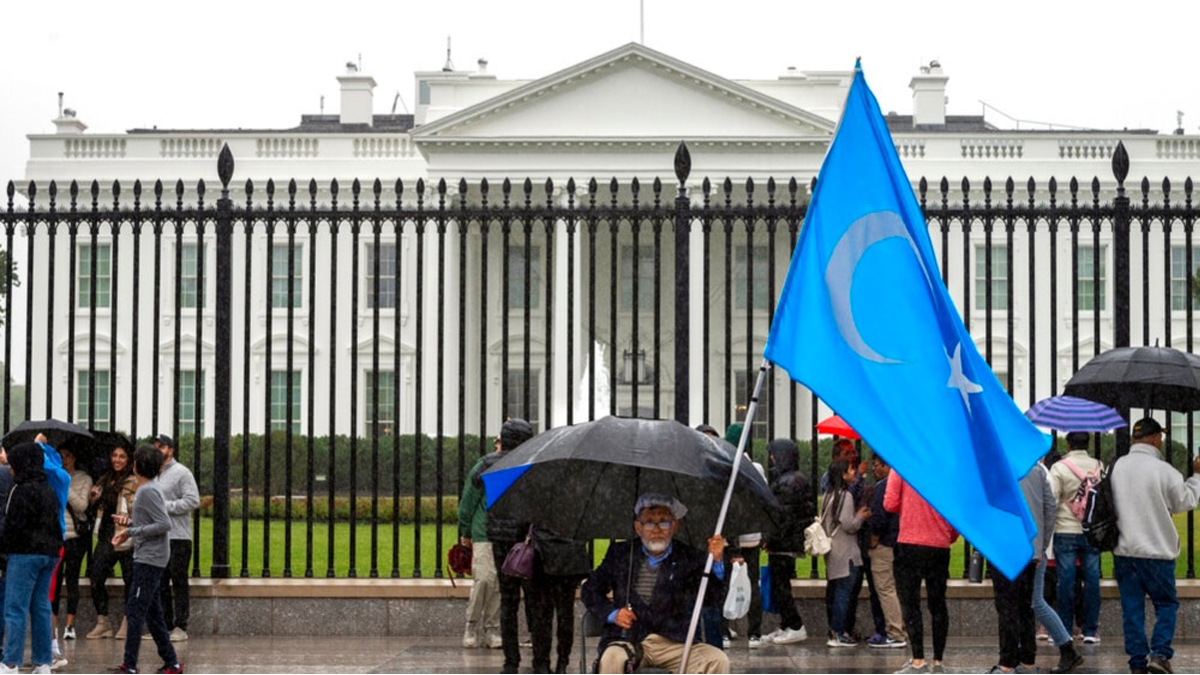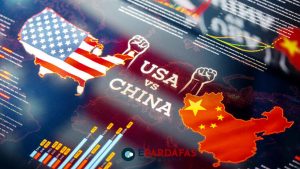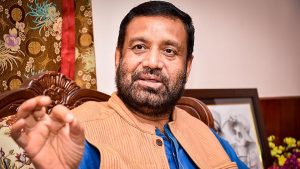
Human rights groups, China voice strong, opposing reactions to UN vote

WASHINGTON: Beijing highlighted the failure of a push by the United States and some Western countries to debate China’s human rights record in Xinjiang at next year’s U.N. Human Rights Council. Uyghur rights groups voiced strong disappointment.
In a statement Friday by China’s Ministry of Foreign Affairs, a spokesperson accused the U.S. and the West of “misinforming the public,” comments that came a day after the 47 member states of the U.N. Human Rights Council voted on the motion to debate China’s treatment of Muslim communities in the Xinjiang region.
The draft resolution was rejected with 19 against, 17 in favor and 11 abstaining.
The resolution drafted by the U.S. and co-sponsored by Britain, Canada, Sweden, Denmark, Finland, Iceland and Norway, was presented to the U.N. Human Rights Council on Sept. 26, asking to discuss the findings of a U.N. Xinjiang human rights report at the next regular session of the council in March.
The 48-page U.N. report concluded in August that China’s human rights violations against predominantly Muslim Uyghurs and other Turkic ethnic groups in Xinjiang “may constitute international crimes, in particular crimes against humanity.” The U.S. and some Western parliaments have designated China’s human rights abuses in Xinjiang as genocide and crimes against humanity.
China’s response
Beijing said the countries that supported the draft resolution “propagated falsehoods” on the human rights situation in Xinjiang and used “U.N. human rights bodies as a tool to interfere in China’s internal affairs and to serve the agenda of using Xinjiang to contain” China.
“The issues related to Xinjiang are not about human rights. They are about countering violent terrorism, radicalization and separatism,” China’s Ministry of Foreign Affairs spokesperson said.
Zhang Meifang, consul general of China in Belfast, posted a screen shot of the result of the vote. “Justice Prevails!” Zhang tweeted.
Rights activists disappointed
Uyghur rights organizations voiced a very different response to the vote.
Dolkun Isa, president of the Munich-based World Uyghur Congress, called the final vote “a missed opportunity by council members” to hold China to the same standard as other countries.
“We are really disappointed by the reaction of Muslim countries, we have witnessed once again how strong the ties of our so-called Muslim brothers and sisters are with China,” Isa told VOA in an email. “The international community cannot fail the victims of the Uyghur genocide.”
Many of the countries that voted against the resolution were Muslim-majority countries.
More than 60 Uyghur rights groups around the world released a joint statement, urging the U.N. and its human rights experts to “take concrete action according to their mandates” on the human rights situation in Xinjiang.
In the statement, Uyghur groups said that by voting against the motion, member “states have blatantly disregarded previously accepted principles of objectivity, dialogue, impartiality, non-discrimination, and non-selectivity” within the Human Rights Council.
“The road to justice is never an easy one,” Omer Kanat, executive director of the Washington-based Uyghur Human Rights Project, said in the statement. “The Chinese government’s singular goal has been to silence even a discussion of the issue — we cannot allow this to happen.”
International rights organizations such as Amnesty International and Human Rights Watch also released immediate statements shortly after the resolution failed, calling the result a betrayal.
“Today’s vote protects the perpetrators of human rights violations rather than the victims — a dismaying result that puts the U.N.’s main human rights body in the farcical position of ignoring the findings of the U.N.’s own human rights office,” Agnes Callamard, secretary-general of Amnesty International, said.
“[T]he extremely close vote highlights the growing number of states willing to buck the pressure from China to remain silent, take a stand on principle and shine a spotlight on China’s sweeping rights violations,” said Human Rights Watch China Director Sophie Richardson.
Phil Lynch, director at the International Service for Human Rights, tweeted a chart of the vote.
The reasons some countries, even those that are predominately Muslim, abstained or voted against the resolution are complicated, analysts said. In Africa, observers say many countries do not want to “pick a fight” with China, the source of investments and loans on infrastructure projects.
China’s claim that it is fighting extremists and separatists in the Xinjiang region also resonates with some nations, according to analysts.
VOA












Comments